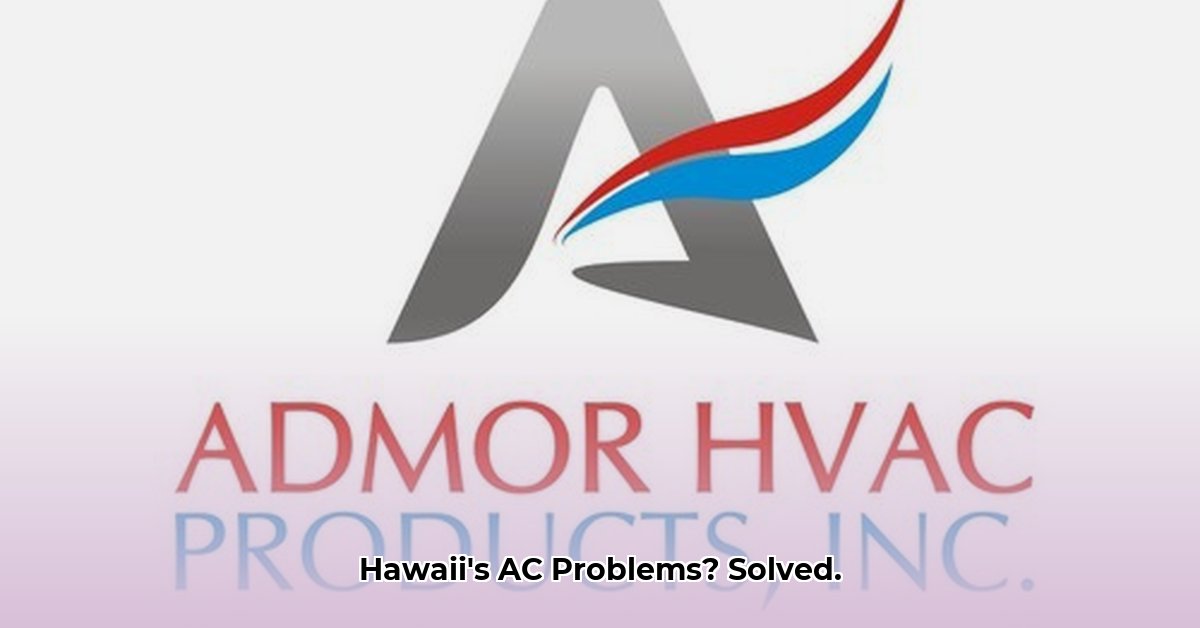
Admor HVAC Hawaii operates within the unique and demanding HVAC market of the Hawaiian Islands. Boasting a multi-million dollar inventory, Admor is a significant player, though precise market share remains elusive due to a lack of publicly available competitor data. This article examines Admor's role, the challenges of the Hawaiian HVAC market, and the implications for various stakeholders. We will also explore factors to consider when choosing an HVAC system in Hawaii.
Admor's Position in the Hawaiian HVAC Market
Admor's substantial multi-million dollar inventory underscores its significant presence in the Hawaiian HVAC market. While precise market share comparisons to competitors are unavailable, this scale clearly indicates a considerable influence on the supply and distribution of HVAC systems across the islands. This highlights the need for further research to fully understand the competitive landscape and Admor's position within it. How much of the market do they actually control? Further investigation is needed to answer this question.
The Unique Challenges of the Hawaiian HVAC Market
Hawaii's diverse geography and climate present unique challenges for the HVAC industry. The islands' microclimates, ranging from lush rainforests to arid volcanic slopes, necessitate HVAC systems tailored to specific needs. Seasonal variations, though less extreme than continental climates, still influence energy demands. Furthermore, government regulations promoting energy efficiency and environmental sustainability are continuously evolving, influencing both system choices and installation practices. For example, stricter regulations regarding refrigerants could impact the availability and cost of certain systems.
What are the long-term implications of Hawaii's push for sustainability on the HVAC market? Further research is required to fully evaluate these complex interactions.
Stakeholder Analysis: Impacts and Interdependencies
Admor's substantial market presence influences various stakeholders. This impact, however, is difficult to fully quantify without complete market data:
| Stakeholder | Short-Term Impact | Long-Term Impact |
|---|---|---|
| Admor HVAC Hawaii | Maintains a strong market position through inventory management and strategic marketing. | Potentially expands its service areas, diversifies product lines, and establishes strategic partnerships. |
| HVAC Contractors | Secure supply chain for parts and equipment. | Increased demand for specialized skills and the adoption of new, energy-efficient technologies. |
| Hawaiian Consumers | Access to a broad range of HVAC options, potentially impacting pricing and competition. | Benefits from improved energy efficiency, reduced energy costs, and better indoor air quality (IAQ). |
| Hawaiian Government | Focus on energy efficiency targets and environmental regulations. | Potential implementation of stricter building codes and incentives for the adoption of renewable energy solutions. |
This analysis reveals an interconnected system, underscoring the need for a more comprehensive understanding of how these various entities interact.
Choosing the Right HVAC System for Your Hawaii Home
Selecting the appropriate HVAC system for a Hawaiian home requires careful consideration. A few key factors must be addressed:
- Home Size and Layout: Proper system sizing is crucial for efficient cooling and heating. A professional assessment is highly recommended.
- Budget: Balance initial costs with long-term energy efficiency. High-efficiency systems, while more expensive upfront, often provide substantial savings over their lifespan.
- Energy Efficiency (SEER Rating): Prioritize higher SEER ratings to minimize energy consumption and reduce environmental impact. This is paramount in Hawaii's climate.
- Features: Consider smart thermostats for energy optimization and advanced filtration systems to enhance indoor air quality (IAQ).
Conclusion: Future Research and Data Needs
While Admor HVAC Hawaii's substantial inventory demonstrates a significant market position, a comprehensive picture requires additional data. Crucially, information on competing companies is needed to fully assess market share and pricing strategies. More specific details on Admor's product offerings and pricing would also greatly enhance our understanding. Further research, focusing on a more detailed competitive analysis and a broader range of system types, would greatly benefit both businesses and consumers in Hawaii. This would inform better decision-making regarding government regulation, industry investment, and consumer choices.